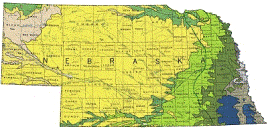United States Geological Survey

United States Geological Survey: Staff Publications
Document Type
Article
Date of this Version
2003
Citation
Published in Pacific Science (2003) 57(4): 385-392.
Abstract
We quantified nesting behavior of Palila (Loxioides bailleui), an endangered Hawaiian honeycreeper, by recording at nests during three breeding seasons using a black-and-white video camera connected to a videocassette recorder. A total of seven nests was observed. We measured the following factors for daylight hours: percentage of time the female was on the nest (attendance), length of attendance bouts by the female, length of nest recesses, and adult provisioning rates. Comparisons were made between three stages of the 40-day nesting cycle: incubation (day 1–day 16), early nestling stage (day 17–day 30 [i.e., nestlings ≤ 14 days old]), and late nestling stage (day 31–day 40 [i.e., nestlings > 14 days old]). Of seven nests observed, four fledged at least one nestling and three failed. One of these failed nests was filmed being depredated by a feral cat (Felis catus). Female nest attendance was near 82% during the incubation stage and decreased to 21% as nestlings aged. We did not detect a difference in attendance bout length between stages of the nesting cycle. Mean length of nest recesses increased from 4.5 min during the incubation stage to over 45 min during the late nestling stage. Mean number of nest recesses per hour ranged from 1.6 to 2.0. Food was delivered to nestlings by adults an average of 1.8 times per hour for the early nestling stage and 1.5 times per hour during the late nestling stage and did not change over time. Characterization of parental behavior by video had similarities to but also key differences from findings taken from blind observations. Results from this study will facilitate greater understanding of Palila reproductive strategies.

